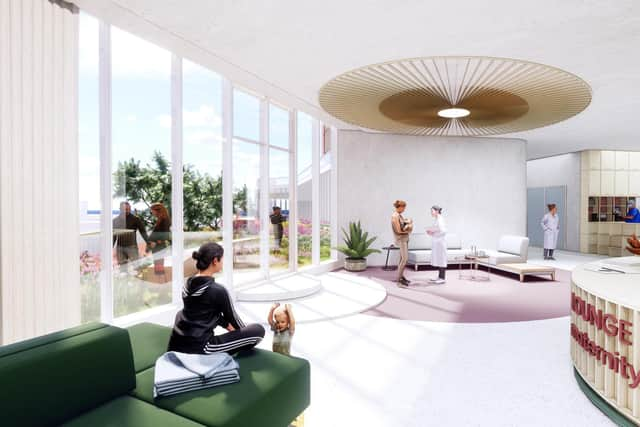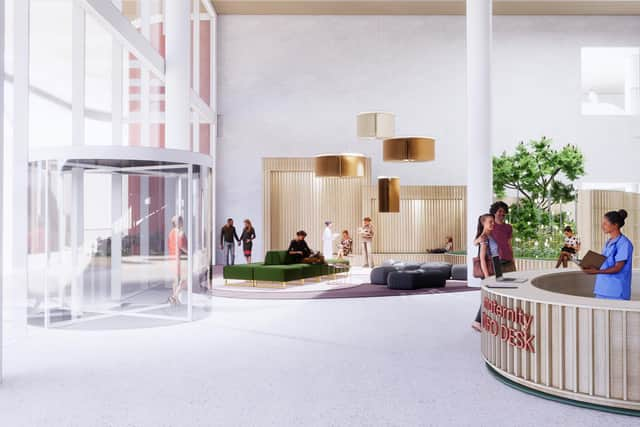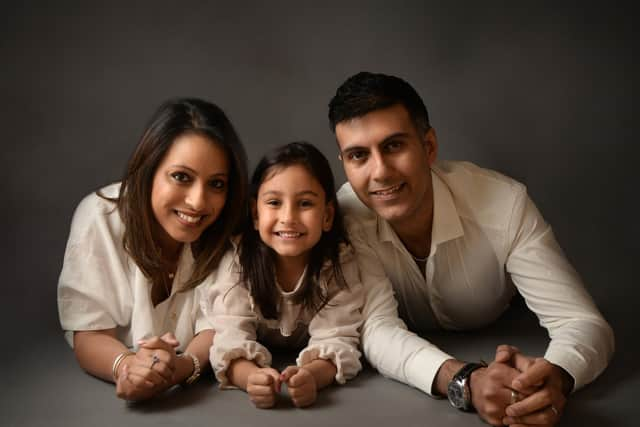Planned new Leeds maternity centre will be largest in UK - with integrated care for mothers and babies
and live on Freeview channel 276
The centre, which will link the planned new Leeds Children’s Hospital and new hospital for adults, will have the capacity to deliver up to 10,500 babies a year.


Advertisement
Hide AdAdvertisement
Hide AdCentralising services will also bring about safer care for mothers and their babies by providing specialist care and facilities under one roof – currently delivered across two sites at St James’s Hospital and Leeds General Infirmary.
Currently, the teams need to transfer babies the 1.5 miles between sites when they need specialist care, separating families and using up staff time and resources. Keeping families together is a key benefit of the plan and will mean more staff are free to deliver clinical care for patients.
Dr Kelly Cohen, Clinical Director for Women’s Services at Leeds Teaching Hospitals NHS Trust, said the new Maternity Centre would “overnight” provide a better experience for patients and staff.
“We will be able to provide integrated family care like we have never been able to do before, which is a key part of the new hospital design,” she said.


Advertisement
Hide AdAdvertisement
Hide Ad“Mums and Dads will be able to look after their babies with the neo-natal teams there to support and help them.”
The new hospitals, planned in a single building at Leeds General Infirmary, are currently being designed, with building expected to be commence in 2024 - with completion planned between 2026 and 2028 as part of the Department’s New Hospitals Programme commitment to deliver 40 new hospitals by 2030.
The new maternity centre will provide the following benefits:
a brand-new purpose-built induction and labour suite


four brand new state-of-the-art theatre units
one of those four theatres dedicated for planned Caesarean sections
a midwife-led unit
a consultant-led birth unit for higher-risk mothers
Advertisement
Hide AdAdvertisement
Hide Adtwo new large maternity wards with space for partners to stay
Many of the babies born in Leeds need specialist care after birth. Being linked so closely to the new Children’s Hospital ensures families receive seamless care from pregnancy, birth and into childhood and adulthood– all in the same place.
The new hospitals will also be a better place to work for staff, who currently travel between sites to deliver care in two separate hospitals.
Once the new hospital is built the extra capacity will provide a better experience by helping reduce delays, providing smoother patient pathways, and reducing the possibility of last minute changes in plan which can be unsettling for patients and their families.
Advertisement
Hide AdAdvertisement
Hide AdEvery year, about 2,500 births in Leeds are by caesarean section – about half of these are emergencies - and one of the four new theatres will be dedicated for planned caesareans.
This will help to reduce delays, anxiety and provide a better experience for families who will have their own designated waiting area and specialist teams to look after them.
Caesarean section patients will also have their own enhanced recovery pathways so patients will often be able to return home within 24 hours.
For post-natal patients there will be spacious maternity wards, with all en-suite single rooms that will have space for partners to stay.
Advertisement
Hide AdAdvertisement
Hide AdSaid Dr Cohen: “It means that parents will be starting or growing their family life in their own private space which is great for infection control, but also means they can get to bond with their new baby in a private room with their own bathroom.”
Monica Saikia, a solicitor from Scarcroft, Leeds was one of those expectant mothers who had to be transferred from St James' Hospital when she was admitted at 20 weeks and 23 weeks due to complications.
As there were no neonatal intensive care cots available at Leeds General Infirmary she said it was a waiting game to see where she would be transferred to.
“In the interim, all we could do was hope and pray that our daughter did not arrive until such time as we knew which hospital could accommodate her,” said Monica.
Advertisement
Hide AdAdvertisement
Hide AdMonica’s daughter Ria, now a happy and thriving six-year-old, spent 103 days in hospital, eight weeks of which were in intensive care.
The design of the maternity centre has not only came about via feedback from the public consultation carried out in 2019-20 but also via patient groups like the Maternity Voices Partnership who have been involved in the plans.
